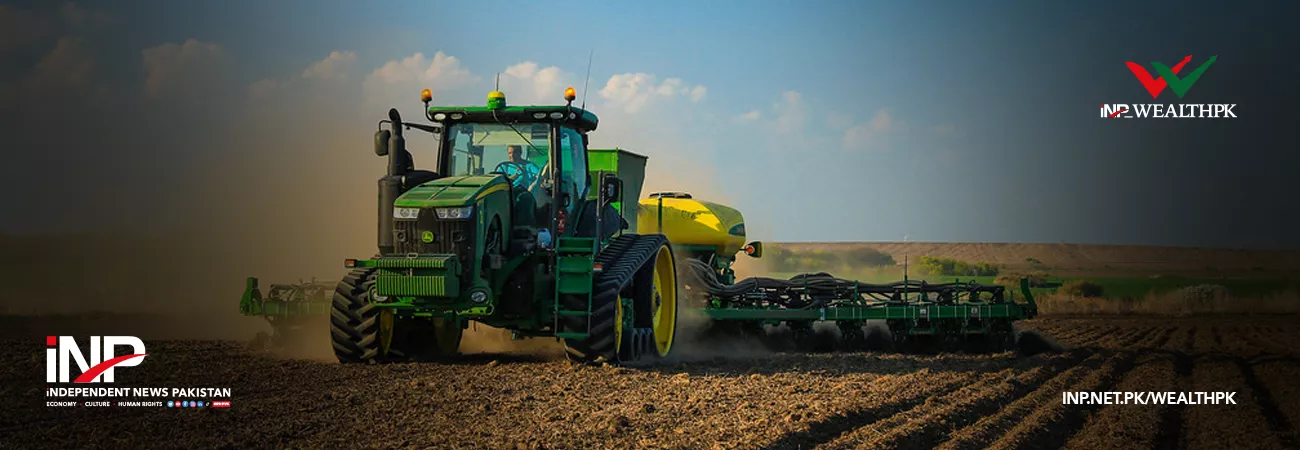INP-WealthPk
Arooj Zulfiqar
The loss of fertile soil, and the use of traditional methods in agriculture and food storage and supply system constitute a grave threat to food security. Without significant soil conservation measures, we may not only suffer nutritional deterioration and loss of vital trace minerals, but also run out of arable land.
Regenerative agriculture is a holistic approach that emphasises the interconnectedness of farming systems and the whole ecological system. Talking to WealthPK, Muzammil Hussain, Scientific Officer at National Agricultural Research Centre, said the future of agriculture depends on the mechanisation of this sector. He said sustainable agriculture cannot be possible without a complete package of agricultural machinery.
He said the Agricultural Engineering Institute (AEI) at NARC has designed a multi-crop precision planter for regenerative agriculture. Regenerative agriculture helps to restore soil health and fertility while protecting water resources as well as biodiversity. “Under regenerative agriculture, the crop is suggested to grow on permanent raised beds under mulch conditions. This practice saves water and other inputs,” Muzammil said.
“In regenerative agriculture, wheat is sown in permanent raised beds that are 42 inches high. So, there is no need for continuous ploughing. Hence, we can cultivate the next crop on the same soil with zero or no tillage,” he explained. Muzammil said a precision planter’s advantage is that it consumes 4kg seeds per acre instead of the usual 50kg.
“Another advantage of a precision planter is that it saves 70% of water because we don’t flood-irrigate; instead, we just put water in its channels. We can grow wheat, cotton, maise, and pulses through this procedure,” he said. “Till now, we have installed these planters in about 10 places in Punjab province on a trial basis, so after harvesting of wheat crop, we will get the results,” he added.
Muzammil said regenerative farmers often minimise tilling their land or forgo tilling altogether. Mixing crop leftovers into the soil and mulching the soil to prevent weed growth reduces or eliminates the use of chemicals, such as pesticides and chemical fertilisers.
“Sustainable farming practices save the cost of machinery, conserve irrigation water and tilling time, and gradually enhance soil’s organic matter,” he said, adding that precision planting is vital to achieving the desired number of plants per acre. He said precision planting will bring about a revolution in the agriculture sector of the country by increasing the yields per acre. He said the government should introduce this planter to the common farmers and help them increase their agricultural output.
Credit : Independent News Pakistan-WealthPk




